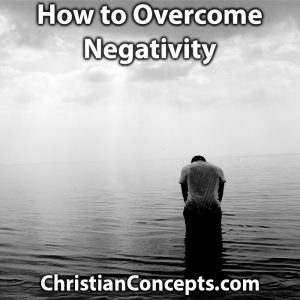A baseball player has three strikes before he is out. People have three deaths before they run out of life. Everyone will experience at least two deaths(*1), but some will manage to get a hit before striking out.
- People are born into a physical life and a spiritual death (strike 1!)
- People will eventually experience a physical death (strike 2!)
- People who have not experienced a spiritual rebirth will experience the final death (strike 3!)
Just like there are two states of spiritual health, there will be two different experiences of judgment at the end of our physical lives. God will judge believers and unbelievers differently.
God Will Judge Unbelievers and Assign Death as Punishment
If people are already spiritually dead at birth, why is a final death needed? I think it is related to the tree of life found in the garden of Eden. The tree of life causes people to live forever (Genesis 3:22). God didn’t want Adam and Eve to live forever as physically alive but spiritually dead. Similarly, the final death removes all opportunity for the physically dead to ever become alive spiritually. It’s permanent like losing a body part that won’t grow back.
When unsaved people die, they face God’s judgment for their sin. Without Jesus to intervene, God will judge them guilty. He will hold their sin against them. The judgment will be straightforward. Those whose names aren’t found written in the Book of Life will be sentenced to the final death (Revelation 20:11-15). There won’t be an appeal process, but only a final and permanent removal of all opportunity for life.
God Will Judge Believers and Reward Valuable Work
Saved people will bypass the unbeliever’s judgment because Jesus knows their names are written in the Book of Life. They will be judged righteous based on Jesus’s record.
Truly, truly, I say to you, whoever hears my word and believes him who sent me has eternal life. He does not come into judgment, but has passed from death to life.
John 5:24 ESV
However, saved people will not escape all forms of judgment. They won’t be judged as to whether they will end up in heaven or hell. Everyone who is saved goes to heaven. The believer’s judgment will be more like the grading of a capstone project. In 2 Corinthians chapter 5, Paul describes the judgment of believers.
For we must all stand before Christ to be judged. We will each receive whatever we deserve for the good or evil we have done in this earthly body.
2 Corinthians 5:10 NLT
Could this verse be addressing both saved and unsaved people? Is it meant to instill fear in believers that Jesus will judge their sin and find their name isn’t written in the Book of Life? No, the context of verse 10 is not discussing the state of a person’s salvation (verses 1-9).
Even so, some people attempt to use this verse to argue that no one can know until the moment of judgment if they are entering heaven. They argue that this is necessary to prevent people from being lazy after they become saved. If a person knows for sure they will be saved, why would they try to be a better person? What incentive do they have to stop sinning? But this goes against many scriptures (Titus 1:1-2, 3:7, Romans 8:1, John 10:27-28, and John 5:24, to name several.
God is going to judge us believers for what we do with the talents God gives us (Matthew 25:14–30). This will be positive overall, however, this is also where we get to see if our work holds up to the test.
Anyone who builds on that foundation may use a variety of materials—gold, silver, jewels, wood, hay, or straw. But on the judgment day, fire will reveal what kind of work each builder has done. The fire will show if a person’s work has any value. If the work survives, that builder will receive a reward. But if the work is burned up, the builder will suffer great loss. The builder will be saved, but like someone barely escaping through a wall of flames.
1 Corinthians 3:12-15 NLT (my emphasis added)
So, believers will be saved, but they will be judged for the quality of their work. If you don’t build well, you may lose your reward, but not your life.
So this judgment is not meant to be a to-the-death competition. Instead of God using fear to motivate good behavior, He uses love. God empowers the believer to succeed. If a person refuses to try, obey, and love, this is evidence that they aren’t saved.
It’s not like there’s only one first place and we need to fight each other for it. Instead, based on the Parable of the Talents, we are each to give our all according to the gifts and abilities God has given us. Those who are genuine believers can obey and love by the power of the Holy Spirit (1 John 2).
You are running a race in which the only competition is yourself. I like this because I can experience both the security of knowing God’s love and provision for me and also the challenge of expressing my will to be all that God made me to be. I want to cooperate with God during the sanctification process. I want to stay connected with Jesus so I can bear fruit.
You should feel positively motivated to serve God with all your heart, soul, mind, and strength. If you’re not, consider what is missing from your relationship with God.
This post is part of a series on eternal security. You can read the introductory post: eternal security means full assurance of salvation.
For more on judgment, consider this article I found.
(*1) except for Jesus (no spiritual birth or death), Enoch and Elijah (no physical death), Adam and Even (no physical birth).
Image by SidLitke from Pixabay




